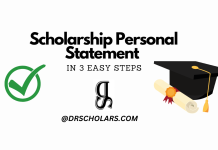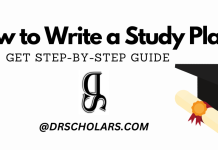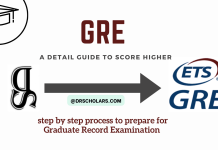Those International Students who got admission to Austrian universities are required to apply for an Austria study visa.
but there are a few important factors related to documents & procedures which must be considered before applying for that visa.
The rules are constantly changing & students need to get updated regularly.
This detailed guide will cover each & everything related to an Austrian study visa.
It will answer your every query.
Austria is a top destination for international students because of the opportunities it provides for quality higher education.
Various Austrian higher education institutes rank high in the global rankings.
You also have the option to get a work permit if you intend to work there. There are also options available for the extension of the residence permit.
You are going to know all about these processes in this article.
So follow the article till the end to find out more about the types of Austrian student visas, their processing fees, processing time, eligibility criteria, required documents, and application procedure.
How to apply for an Australian study visa? check our step-by-step process.
Austria Study Visa
1. Types of Austria Study Visas
3. Austrian Embassies & Consulates for Students
4. Visa Processing Time for Austria Study Visa
5. Documents Required for Austria Study Visa
6. How to Apply for an Austrian Student Visa
7. Interview Questions for Austria Study Visa
If you want to study in UK, check our ultimate UK study visa guide.
1. Types of Austria Study Visas
There is one category for a student visa for Austria. However, this category is divided into two sub-categories according to the duration of the study program or event.
The following are the details of both these sub-categories:
1.1. Austria Short-term Visa (Visa C)
The students willing to travel to Austria for less than 90 days can apply for Visa C. The visa allows you to stay in the country for a maximum of 90 days.
This visa type can come in handy if you are visiting Austria for a particular sports, cultural, or academic event.
You can access the application form to apply for the visa here.
1.2. Austria Long-term Visa and Residence & Work Permit (Visa D)
Those international students who are willing to undertake a full-time degree program at an Austrian institute have to apply for Visa D. The maximum duration for the validity of Visa D is six months.
Visa D or a National visa is usually acquired by students enrolled in their Bachelor’s, Master’s, or PhD program at an Austrian university.
Remember, later these students will be required to apply for a residence permit to extend their stay in the country.
With a residence permit, they can work up to 20 hours per week.
However, their potential employer must apply for their work permit at the Public Employment Service (AMS).
Students can find official Austrian representative missions here, and can also download the Visa type D form.
Check out more details about visa type D here.
1.3. Study Programs & Austria Visa Table
|
Study Programs |
Stay of Duration |
Type of Austrian student visa |
|
Exchange & mobility program/Cultural/Sports event |
Less than 90 days |
Austria Short-term Visa (Visa C) |
|
Internship |
IF More than 90 days |
Austria Long-term visa (Visa D) |
|
Full-time Graduate or post-graduate programs |
More than 90 days |
Austria Long-term visa (Visa D) |
|
Exchange & Mobility program, University single course, Vocational training, Academic short course, Apprenticeship |
IF More than 90 days |
Austria Long-term visa (Visa D) |
Check step by step process of the Italy study visa.
2. Austria Study Visa Fees
For those students who are applying for “Visa C” (Also known as a Schengen visa or short-term visit visa ), the application fee is €80, While For Austrian Visa type D, the fee is 150 euros.
The applicants may later also pay up to € 120 for a residence permit.
Remember in some countries the visa applications are received by external service providers like VFS Global etc, which can also take extra charges up to € 30.
Students can also contact their Austrian consulates if they have any queries.
Check our detailed guide for Denmark study visas.
3. Austrian Embassies & Consulates for Students
The Austrian embassies and consulates are responsible for the issuance of student visas. You can approach these embassies and consulates to initiate your visa process. Search for the nearest embassies or consulates in your area through this link.
International students can also find Some other important links here like Study in Austria, OeAD student housing, and Grants. at.
Check our detailed guide about Norway student visas.
4. Visa Processing Time for Austria Study Visa
The visa processing time for a student visa in Austria can vary from case to case. Various elements play a role in deciding how long the decision takes on a visa application.
The processing time may be affected due to the busy work schedules of embassies and consulates because they might receive more applications in some months than others.
The time can also be affected due to the nationality, visa type, or any other issue faced by the applicant during the application process.
Nevertheless, the standard time for the issuance of a visa type C (Also known as a Schengen visa or short-term visit visa ) is 15 calendar days. But in some cases, it can exceed 45 days.
The visa type D for Austria can take up to 4 weeks, but shouldn’t take longer than 6 months for a final decision.
Here is our detailed guide about the Netherlands Study visa.
5. Documents Required for Austria Study Visa
5.2. Passport-size photographs
5.7. English Language Proficiency (IELTS) for Austrian Student Visa
5.9. Acceptance Letter for Admission
5.10. Bank statement for Austria Study Visa
5.11. Health (Travel) Insurance
5.14. Receipt of Visa Processing Fee
5.15. Copy of Hotel Reservation & Flight Booking
5.16. Family Registration Certificate (FRC)
5.17. No Objection Certificate (Optional)
5.18. Police Clearance Certificate (Optional)
5.19. Certificates of extracurricular achievements
5.20. Corona Vaccination Certificates
5.21. Marriage and Childbirth Certificate
Check our detailed guide about Finland student visas.
5.1. Austria Visa Application form
Carefully fill out the correct Austrian visa application form & submit it.
The students can access the application form for visa C and Visa type D here.
Students can also contact their Austrian consulates if they have any queries.
Remember 90% of the students will need to apply for Visa type D.
Remember in some countries the visa applications are received by external service providers like VFS Global etc.
5.2. Passport-size photographs
The general picture format for an Austrian student visa is the following.
A: Two recent (within 6 months) passport-size (35x45mm) photos.
B: White background with neutral facial expressions. (Unedited)
C: Avoid uniforms & the head should be 80% in the photo.
D: The applicant should look at the camera.
E: One photograph should be glued to the visa application
while the other should contain the applicant’s full name on the reverse side, & should be attached with a paper clip to the visa form.
The same rules apply to every Schengen country.
5.3. Valid Passport
A: A passport must have at least 18 months of validity from the date of visa application.
B: Applicants will also provide visa copies (if they have any).
C: The passport must have at least two blank pages.
D: All the previous passports must also be attached. (If they have any)
5.4. CNIC
A birth certificate and a National Identity card are mandatory for an Austrian student visa.
5.5. Academic Documents
It includes all academic records & certificates.
A. Certificate & transcript of Bachelor’s (If a student is applying for a master’s program)
B. Certificate & transcript of Master’s (If a student is applying for a Ph.D. program)
C. Transcript (DMCs) of Metric & FSC and certificates (if a student is applying for a bachelor’s degree)
D. Proficiency certificate in English from the university.
E. Course summary which explains current courses & previous courses.
F. Provide two Recommendation Letters from your university along with the referee’s detail.
5.5.1. Translated Documents contain:
A. Confirmation from Translation Company/Translator
B. Translation Date
C. Name and Signature of the Translator
D. Translator’s Contact Details
NOTE:
The above-mentioned documents must be attested by respective universities and boards.
For example, in the case of Pakistan, it must be attested by IBCC, HEC, and MOFA (Ministry of Foreign Affairs).
IBCC authority is only responsible for the attestation of metric and inter documents.
Dear offices are present in Peshawar, Karachi, Lahore, Islamabad, and also in other cities of Pakistan.
HEC office attests to Bachelor’s, Master’s, and Ph.D. documents.
Other International students should attest their documents from their own respective ministries & authorities.
If you want to study in Hungary, check out our ultimate Hungarian study visa guide.
5.6. CV
CV is compulsory for the university admission process and optional for embassy interviews.
It should contain all the contact details and academic information.
Students can make a perfect Cv in Europass here in under a few minutes.
5.7. English Language Proficiency (IELTS) for Austrian Student Visa
There are no specific mentions of IELTS for Austrian student visas on their immigration website. However, IELTS is mostly compulsory for almost all public Austrian universities.
And Having a strong band in IELTS certainly increases your chances of getting a residence & work permit.
For Bachelor’s an overall 6 bands while for a Master’s 7.0 bands is good for Austria.
If students can’t do IELTS they should provide the alternative PTE 54 score.
Therefore, Students from NONEU countries are strongly advised to do IELTS (Or TOEFL or PTE) to avoid any hassle.
Remember the chance of getting a type D visa without IELTS for Non-Eu students is very low.
5.8. Statement of Purpose/Letter of Motivation/Cover Letter
This document comprises the following information about the student
A. Previous academic record
B. Employment Status
C. Relationship with your home country
D. Immigration History
E. Economic conditions of the applicant
A statement of purpose (SOP) & letter of motivation (LOM) are almost the same thing & could be interchangeable.
In this letter, you are asked to write about your personal and professional reasons why are you applying for a course or the scholarship and what is your intention of traveling to Austria.
The maximum length of this letter is three pages, But it is advised to make it short & concise to one page.
5.9. Acceptance Letter for Admission
It is an acceptable proof of study, internship, and training program at a higher institution in Austria.
This acceptance letter should mention:
That the applicant is accepted to a study program at an Austrian university.
It also includes accommodation proof and details of the organization supporting the student, plus the duration of studies.
Students should also attach the scholarship details if they are getting any.
5.10. Bank statement for Austria Student Visa
The applicants are required to prove their financial means to be eligible for the Austrian visa. The proof can be provided through a proper bank statement.
- Proof of 515,30 euros per month must be given by students up to the age of 24.
- Proof of 933,06 euros per month must be given by students above the age of 24 through a savings account or a bank account
It means that International students up to the age of 24 should provide a bank statement of € 7000, and those above 24 should provide a bank statement of € 11,000 for an Austria study visa.
It’s evidence that the applicant is capable of covering his/her expenses for at least one year.
Remember Bank statements must not be more than 30 days old.
Bank Statement must be signed and stamped by the bank officer. The bank account must be in the name of the student.
This amount should be shown irrespective of the university fee.
In the case of a scholarship or grant, there is no need of showing a bank statement.
5.10.1 SPONSORSHIP
In the case of sponsorship, the applicant should make an Affidavit of the sponsor, in which they will state their relationship.
The sponsor is also required to show the tax return for the last two years.
Property Details & other Income sources of the sponsor are also required.
If you want to study in China, check out our ultimate Chinese study visa guide.
5.11. Health (Travel) Insurance for Austria study visa
International students from Non-Eu countries are advised to have private or public health (Travel) insurance which can cover their first few months in case of any medical & Pharmaceutical assistance or emergency.
The insurance must guarantee the coverage of repatriation costs and Covid-19 treatment.
While the EU/EEA students can use their European Health Insurance Card.
5.12. Medical certificate
Students must do a medical examination and show previous medical history about medication and illness.
They must provide test proof of Tuberculosis and Hepatitis A and B. (Incase of some countries)
Students make sure to regularly contact the embassy in case of any queries.
5.13. Proof of university Legal Fees
It is a receipt or proof of the “first-semester fee” or the “fee for the whole year”.
when students pay the Annual fee, University will send them one unconditional admission letter.
Students must also save all the online fee invoices & attach them to their documents while submitting an application for an Austrian student visa.
5.14. Receipt of Visa Processing Fee
The student will pay a non-refundable fee and fill out the form.
The application fee for visa C is €80, While For Austrian Visa type D the fee is €150. Students can also contact their Austrian consulates if they have any queries.
Remember in some countries external service providers like VFS Global can also take extra charges of up to 30 euros for their services.
5.15. Copy of Hotel Reservation & Flight Booking
The booking confirms the arrival date in a particular country. The hotel reservation shows that a student researched the process.
The host university should mention in their admission letter if they provide accommodation for the student.
The student can also provide a rental home contract.
5.16. Family Registration Certificate (FRC)
A family registration certificate (FRC) is a document that tells that the family record of the student is complete in the database of the home country.
This document contains details of the name and information of the parents and siblings.
This document is very much important in case of extending a residence permit or in case of permanent settling in Austria.
International students can get it from their local ministries & authorities.
Pakistani students can get FRC through NADRA offices in Pakistan.
They can also apply for it online.
5.17. No Objection Certificate (Optional)
It also varies from country to country. It is compulsory for some countries and known as NOC.
This letter will include that the student is applying for a student visa to Austria, And will return to the country after completing their education.
NOC must be written by the Dean or HOD of the university.
5.18. PCC (Police Clearance Certificate) for an Austria study Visa
International students who want to apply for an Austria D type visa (Long term student visa of more than 90 days) must submit a document showing a history of a criminal record.
The country of your residence must issue this document within five months of starting the visa application.
Generally, PCC can be issued by your local security police station or many international students can also make it online.
Indian students can make it through Passport seva, and Pakistani students can make it in “Police Khidmat Markaz” or the ICTP app or the ICTP website.
International Students normally don’t need PCC for Austria short-term visas, however, it’s better to cross-check the requirement with your local Austrian consulate.
Here is our detailed guide about Sweden study visas.
5.19. Certificates of extracurricular achievements
These certificates could include internship certificates and experience letters.
The embassy gives extra value to these certificates.
5.20. Corona Vaccination Certificates
Students must complete the COVID-19 vaccination before the interview appointment at the embassy.
The administered vaccines are listed by the WHO (World Health Organization).
5.21. Marriage and Childbirth Certificate (Optional)
The embassy may ask about Childbirth Certificates and marriage certificates.
It is better to bring both childbirth and marriage certificates along with you for a student visa interview.
If You have any questions related to your Austria study visa or any other study visa, you can also contact us for a live one-on-one session.
Whatsapp Contact: +393512735708
6. How to Apply for an Austrian Study Visa?
Are you wondering how you can apply for an Austrian study visa? You don’t need to think anymore and follow these four steps to complete the application process.
6.1. Apply and get admitted to a university
Your first step is to find a university in Austria in your desired course. You can find a list of the top universities in Austria here.
6.2. Gather all the required documents
After getting an admission letter, you need to apply for a student visa in Austria. However, before initiating the application procedure, you must gather all the required documents so that you don’t face any unnecessary delays in your application process.
You can find a complete list of documents in the above section.
6.3. Fill out the visa application form & pay the fee
The third step is to carefully fill out & sign your desired visa application form.
You can access the application form for Visa C and Visa Type D here.
The application fee for visa C is €80, While For Austrian Visa type D the fee is €150. Students can also contact their Austrian consulates if they have any queries.
6.4. Book an appointment for an interview at an Austrian Embassy or Consulate
The last step is to book an appointment for an interview at an Austrian embassy or consulate. You can check out the embassies & consulates nearest to you here.
The following link can also be used to book an appointment. Use the search bar to check out the appointment schedules according to your area of residence.
The standard time for the issuance of a visa type C (Also known as a Schengen visa or short-term visit visa ) is 15 calendar days. But in some cases, it can exceed 45 days.
The visa type D for Austria can take up to 4 weeks, but shouldn’t take longer than 6 months for a final decision.
7. Interview Questions for Austria Study Visa
There is common questions student face during their visa interview.
These questions vary from profile to profile and are given below:
Name of the student & questions about previous educational qualification?
What is your purpose for going to Austria?
Did you already search for opportunities in your home country?
Where is the university located in Austria?
Who is your sponsor? What is your relationship?
What is your course structure or Course summary?
Which course you will start at the university?
Why did you choose this university and subject?
How will this course shape your career?
How did you find this university?
What are your plans after the completion of the course?
Who advised this accommodation and how much will be?
When will your course start?
Why did you choose Austria and not another country?
What is the capital of Austria and the spoken language?
Can you name other cities where famous universities exist?
Did you do an examination or a test made by the university?
Please name the person with whom you are in contact at the university.
Where will you stay in Austria?
How much do you expect to spend per month in your destination city? On your rent, food & fee.
Is there any information to tell us to support your application?
Check our detailed guide about Spain’s student visa.
8. Frequently asked questions about Austria study visa
Q: What is the total money estimation to study in Austria?
A rough money estimation for an international student, who wants to apply for an Austrian study visa is given below.
|
Process |
Money estimation |
|
Visa process fee (visa type C and D) |
80€ / 150€ |
|
VFS service charges |
30-40 Euros |
|
IELTS fee |
150-250 Euros. |
|
Bank Account statement |
7000 / 11,000 Euros |
|
Documents attestation from different ministries & authorities |
Upto 100 euros |
|
Austria public universities annual fee |
Around 726 euros per semester |
Check our detailed guide about Norway student visa.
Q. Do you need IELTS for the Austrian student visa?
Ans. No, there is no such requirement to get an Austrian study visa. However, you will need an IELTS or another test result to prove your English Language proficiency while applying to the Austrian university.
The overall bands for Bachelor’s must be 6 and for masters the required band is 7.
You can also provide other test results such as PTE, TOEFL, CAE, etc.
Q. Which countries are exempted from applying for a visa to Austria?
Ans. The nationals of EU/EEA countries or Switzerland are exempted from applying for a visa in Austria. Nationals of these countries can enter Austria without a visa through a valid travel document which can be a passport or a national identity card.
However, if they intend to stay in the country for over 3 months, they must register with the municipal authority.
The Austrian border officer holds full authority to stop them from entering Austria.
Q. How can students get a residence permit in Austria?
Ans. You need to meet some requirements to get a residence permit in Austria. You must have the financial means to stay in Austria, travel insurance, and accommodation.
The applicants can apply for a residence permit for Austria after getting Visa D or from their home country directly to the embassy. You can check out more details about the Austrian residence permit here.
Q. While applying for an Austria study visa, Can my parents advocate for my financial means?
Ans. Yes, the parents can act as guarantors by stating that they will be responsible for your financial needs. For this, they must show that they are financially able to do this. This can be done by the submission of proof of income, bank statements, property details & tax records.
Q. Can my Austrian study visa get revoked after issuance?
Ans. Yes, your visa can get revoked after issuance if you pose any kind of danger to the law and order situation in the country. Moreover, if any false information is detected in your application process, strict action can be taken by the consular office.
Q: What is the Eligibility Criteria for Austrian Student Visa?
The student visa for Austria is issued to those who meet the eligibility criteria set out by the Austrian Government. The general eligibility criteria are as follows:
- Students applying for the Austria student visa must show proof of admission to a higher education institution in Austria or a Schengen territory
- The student must have paid the tuition fees installment
- The students must have accommodation in Austria
- Clean travel history
- The applicant must prove their financial means
We cover everything in detail, but if you still have any questions, please ask us in the comments.
If You have any questions related to your Austria study visa or any other study visa, you can also contact us for a live one-on-one session.
Whatsapp Contact: +393512735708











